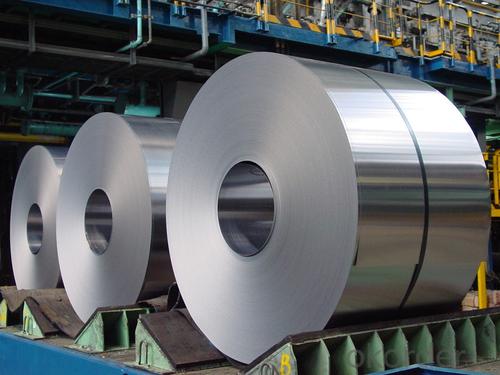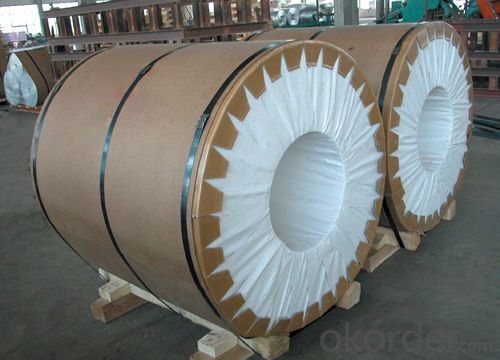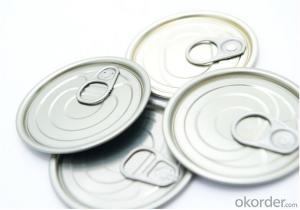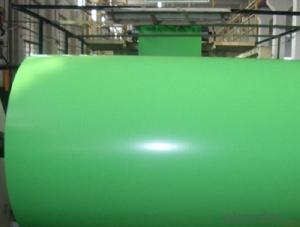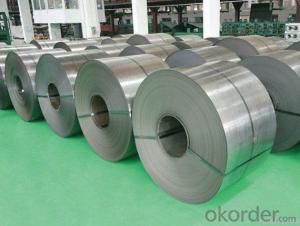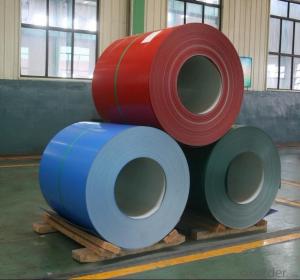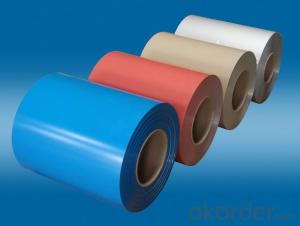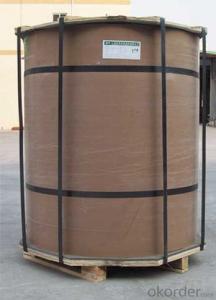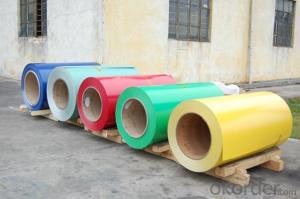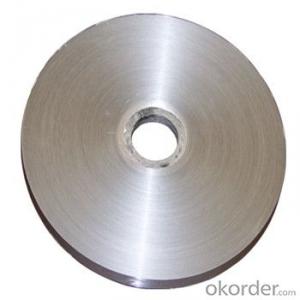Painted Aluminum Coil Stock 1050 H24 for Roofing & Ceiling
- Loading Port:
- China main port
- Payment Terms:
- TT or LC
- Min Order Qty:
- 5 m.t.
- Supply Capability:
- 5000 m.t./month
OKorder Service Pledge
OKorder Financial Service
You Might Also Like
A.Production Description of AA1050
1000 series is formed by the addition of a small amount of copper in pure aluminum, with excellent forming characteristics, high corrosion resistance, good welding and electrical conductivity. They are widely used in signs, billboards, building exterior decoration, bus body, high factory wall decoration, kitchen sink, lamp, fan, electronic components, chemical apparatus, sheet processing, deep drawing or spinning hollow ware, welding parts, heat exchangers, Bell surface and plate, plates, kitchen utensils, accessories, safety equipment etc.
Speicification:
Alloy: 1100 1060 1050, 1070
Temper: HO, H14, H24
Thickness:0.2mm-8mm
Width :20-2000mm
B. Chemical Composition of Alloy 1050
| Alloy | Si | Cu | Fe | Mg | Zn | Mn | Ti | V | Al |
| 1050 | 0.25 | 0.05 | 0.000~0.400 | 0.05 | 0.05 | 0.05 | 0.03 | 0.05 | 99.5 |
C. Mechanical Properties of Alloy 1050
| Alloy & Temper | Tensile Strength(M/PA) | Yield Strength(M/PA) | Elongation(%) | Hardness(HBS) |
| 1050 H24 | 95~130 | 75 | 6 | / |
- Q: How do aluminum coils contribute to lightweight transportation?
- Aluminum coils contribute to lightweight transportation by providing a lighter alternative to traditional materials like steel. Due to its low density and high strength-to-weight ratio, aluminum is used to manufacture various components in transportation vehicles, including coils for heating and cooling systems. The use of aluminum coils reduces the overall weight of the vehicle, resulting in improved fuel efficiency and reduced emissions.
- Q: Can aluminum material be utilized as a baking surface for bread?
- <p>Aluminum coils are not typically used for baking bread. While aluminum is a good conductor of heat and is used in baking sheets and muffin tins, it's usually in a flat, solid form. Aluminum coils, often used for industrial purposes like heat exchangers, are not designed for direct food contact. For baking bread, it's best to use materials specifically designed for baking, such as silicone mats, parchment paper, or non-stick baking sheets. These materials are safe for food contact and can withstand the high temperatures required for baking bread.</p>
- Q: Can aluminum coils be used in the production of aluminum wire?
- Yes, aluminum coils can be used in the production of aluminum wire. Aluminum wire is typically made by drawing or extruding aluminum rods or bars through a series of dies to reduce their diameter and increase their length. Aluminum coils, which are essentially continuous rolls of aluminum sheet or strip, can be used as a starting material in this process. The aluminum coils are first unwound and then fed into the wire production line to be further processed. They are typically annealed, cleaned, and then passed through a series of drawing dies to reduce their diameter and increase their length until the desired wire gauge is achieved. Therefore, aluminum coils can be an efficient and cost-effective starting material for the production of aluminum wire.
- Q: What’s the production standard of aluminum coil?
- GB/T3880-2006 mechanical standard GB/T3190-1996 chemical standard
- Q: Can aluminum coils be customized?
- Yes, aluminum coils can be customized according to specific requirements. Aluminum coils are highly versatile and can be customized in terms of thickness, width, length, alloy composition, surface finish, and other specifications. This allows for a wide range of applications in various industries such as construction, automotive, aerospace, electronics, and packaging. Customization of aluminum coils can be done through processes like slitting, cutting-to-length, embossing, painting, and coating. This flexibility in customization enables manufacturers to meet the unique needs of their customers and ensures that the aluminum coils are optimized for their intended use.
- Q: Can aluminum coils be painted for custom designs?
- Yes, aluminum coils can be painted for custom designs. Aluminum is a versatile material that can be coated with various paints and finishes, allowing for a wide range of custom design options.
- Q: How do aluminum coils resist corrosion?
- Aluminum coils are able to resist corrosion due to their unique chemical composition and protective oxide layer. Aluminum is a highly reactive metal, but it forms a thin layer of aluminum oxide on its surface when exposed to air. This oxide layer acts as a protective barrier, preventing further reaction with the environment. This layer is self-repairing and continues to form even when it gets damaged, providing long-lasting protection against corrosion. Additionally, aluminum coils can be further protected by applying coatings or treatments that enhance their resistance to corrosion. These coatings act as an additional layer of defense, shielding the coils from potential corrosive agents. Overall, the combination of the natural oxide layer and optional coatings makes aluminum coils highly resistant to corrosion, ensuring their durability and longevity in various applications.
- Q: Is it possible to create a baking pan using aluminum coil material?
- <p>Yes, you can use aluminum coil to make a baking pan. Aluminum is a popular material for baking pans due to its excellent heat conductivity, which allows for even heating. When creating a baking pan from aluminum coil, ensure that the coil is food-grade and that the edges are properly sealed to prevent any sharp edges. It's also important to consider the thickness of the aluminum, as a thicker gauge will distribute heat more evenly. Always follow safety guidelines and ensure that the aluminum coil is suitable for use in an oven.</p>
- Q: i dont want aluminum cookware, but how about a stainless steel set with an aluminum core. Is this the same as aluminum pots and pans? Thanks.
- The aluminum is encased in the stainless steel, usually as a thick disk in the bottom. It is an excellent conductor of heat and holds the heat well once it gets hot. All you see is the stainless, none of the aluminum because it's between two layers of stainless in the bottom of the pots. You are right, you don't want food cooked in straight aluminum, some metal taste can transfer to certain foods. That won't happen with stainless.
- Q: What are the different coil winding options available for aluminum coils?
- Aluminum coils offer several coil winding options to choose from. These options include: 1. Single-layer winding: This basic winding option involves winding the wire around the coil in a single layer. It is ideal for applications with limited space and the need for efficient cooling. 2. Double-layer winding: This option involves winding two layers of wire on top of each other. It provides improved heat dissipation and allows for higher power handling. 3. Concentric winding: With concentric winding, the wire is wound in concentric circles, each with a slightly different diameter. This type of winding reduces the overall size of the coil while maintaining high inductance. 4. Litz wire winding: Litz wire is composed of individually insulated strands. This winding option minimizes skin effect and reduces power loss due to high-frequency currents. It is commonly used in high-frequency applications. 5. Toroidal winding: Toroidal winding creates a circular shape for the wire, forming a toroidal coil. This type of winding offers better containment of the magnetic field and reduces electromagnetic interference. 6. Layered winding: Layered winding involves winding the wire in multiple insulated layers. It is used when a compact space requires a high number of turns. 7. Sectional winding: Sectional winding divides the coil into different sections and winds each section separately. This allows for better control over magnetic flux distribution and reduces losses. Each coil winding option has its own advantages and is suitable for different applications based on factors such as power handling capacity, size constraints, and frequency requirements.
Send your message to us
Painted Aluminum Coil Stock 1050 H24 for Roofing & Ceiling
- Loading Port:
- China main port
- Payment Terms:
- TT or LC
- Min Order Qty:
- 5 m.t.
- Supply Capability:
- 5000 m.t./month
OKorder Service Pledge
OKorder Financial Service
Similar products
Hot products
Hot Searches
Related keywords


